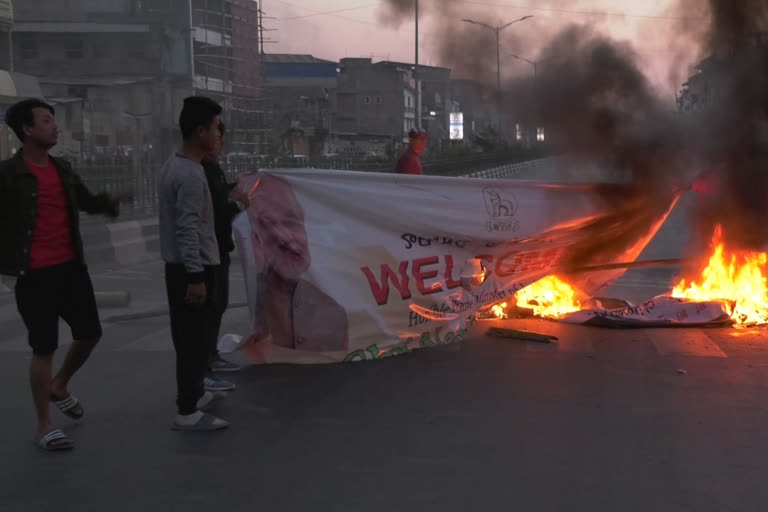New Delhi: When protests on the citizenship bill erupted in North East India earlier this year many believed it had spoiled the Bhartiya Janta Party's chances in the region for the Lok Sabha polls.
Yet, the saffron party and its allies walked away with 18 of the 25 seats up for grabs in the northeastern states, successfully weathering the storm of unrest that rocked most parts of Assam, Nagaland, Manipur, and Mizoram. The Congress, the grand old part of India, was restricted to just four seats, while its allies bagged two. One constituency was won by an Independent candidate.
When protest broke out against the Centre's plan to bring the Citizenship (Amendment) Bill, 2016, (CAB) dubbed to be against the interest of the indigenous people of the region many political commentators believed that it would mar the BJP's chances in the general elections in the North East.
The bill had proposed to give citizenship to Hindus, Sikhs, Christians, Buddhists, Jains, and Parsis from Muslim-majority Bangladesh, Pakistan, and Afghanistan.
Violent agitations in Assam, Manipur along with protests in Mizoram, Meghalaya, and Tripura against the bill forced the Centre to abort plans to introduce it in Rajya Sabha allowing it to lapse.
However, proving the naysayers wrong, the BJP and its allies gained majorly, especially in Assam where a total of 14 seats were up for grabs. BJP on its own won in nine seats in the state.
In 2014, the saffron party had won seven seats. On the other hand, the Congress won three seats, the same as in 2014. Its ally All India United Democratic Front (AIUDF) won one seat, down from three in 2014 while one constituency went to an Independent candidate.
In Arunachal Pradesh, Union Minister of State for Home Kiren Rijiju led a clean sweep for the BJP on the two Lok Sabha seats in the state, routing the Congress.
While Rijiju retained his Arunachal West seat, his party colleague Tapir Gao trumped Congress candidate Lowangcha Wanglat in the Arunachal East constituency.
